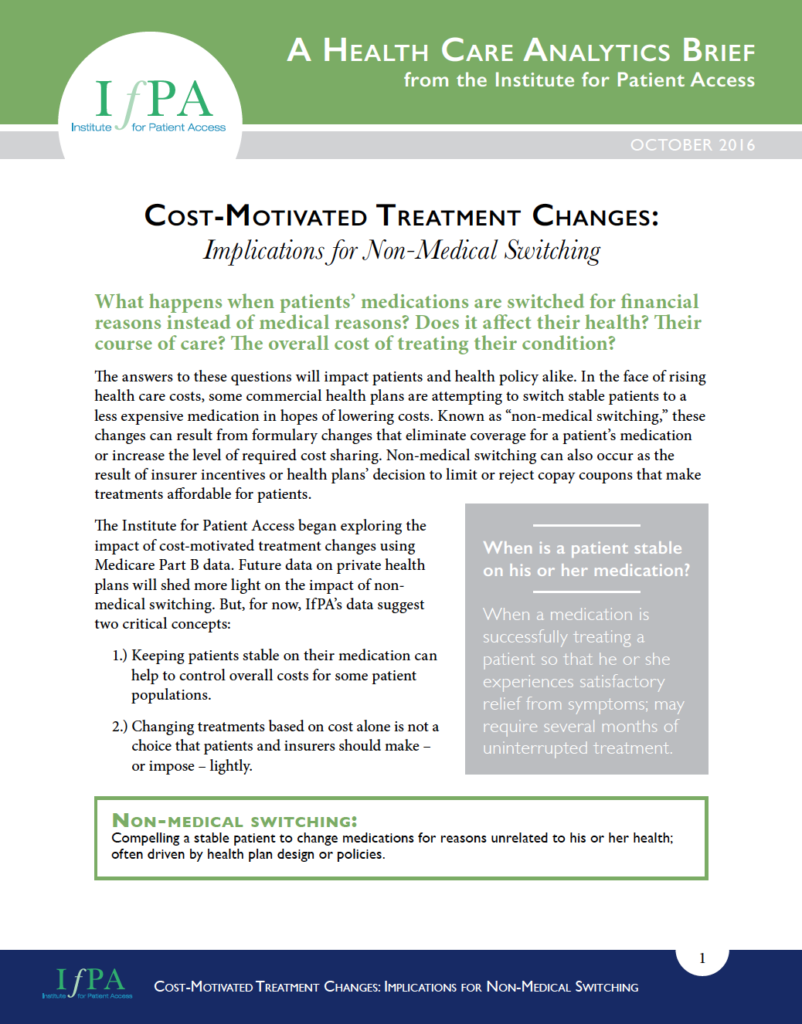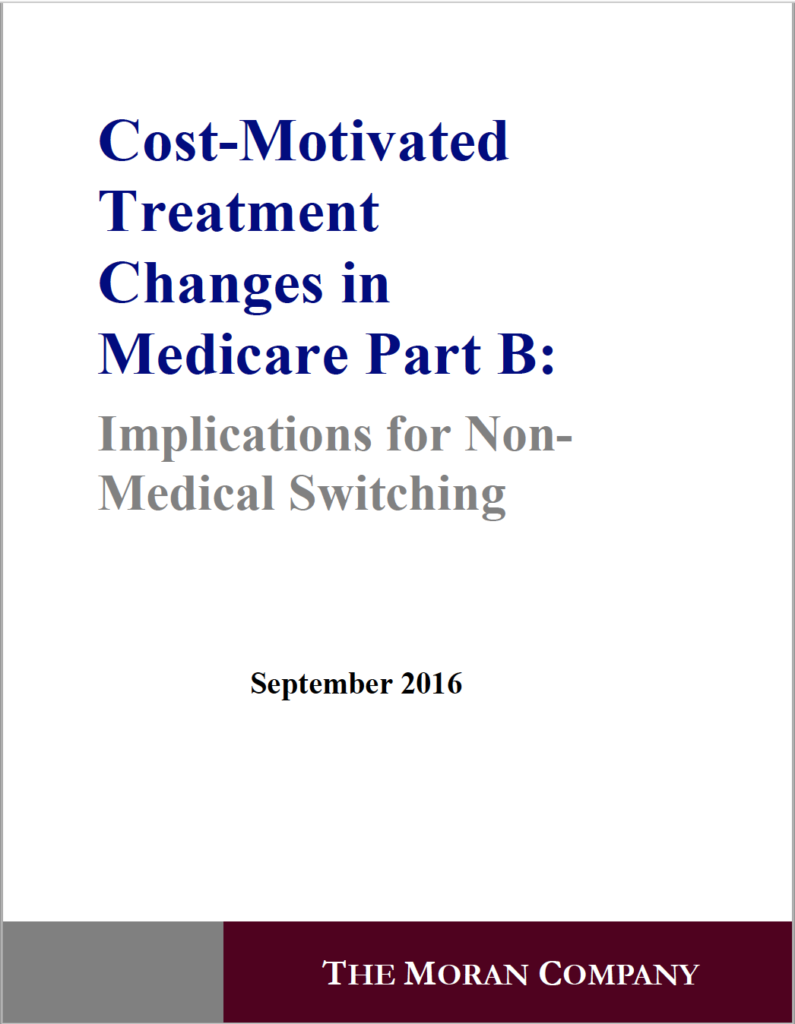Cost-Motivated Treatment Changes & Non-Medical Switching: Commercial Health Plans Analysis

Non-medical switching occurs when health plans drive stable patients to switch from their current medication to a less expensive alternative. It can occur several different ways: by changing the list of approved drugs, by incentivizing pharmacists or physicians to switch a patient’s medication, or by limiting or eliminating the use of co-pay coupons that patients […]
Tennessee Poll Shows Impact of Non-Medical Switching
Polling results from Tennessee cast new light on a trend that’s sparking national concerns: non-medical switching.
Cost-Motivated Treatment Changes: Implications for Non-Medical Switching

What happens when patients’ medications are switched for financial reasons instead of medical reasons? Does it affect their health? Their course of care? The overall cost of treating their condition? The answers to these questions will impact patients and health policy alike. In the face of rising health care costs, some commercial health plans are […]
Cost-Motivated Treatment Changes in Medicare Part B: Implications for Non-Medical Switching

Under prevailing benefit designs in both public and private health insurance systems, patients may find that pivotal decisions about their health care hinge on financial, not medical, factors. In some cases, cost-sharing burdens or changes in patients’ financial situations may lead patients and their health care providers to select or switch treatment options because they […]
Switching Infusion Rx to Pharmacy Benefit May Limit Patient Access
Insurers have a new strategy for reducing the costs of injectable and intravenous prescription drugs: switching these medication from patients’ medical benefit to their prescription drug coverage.

